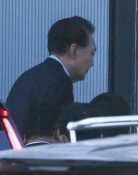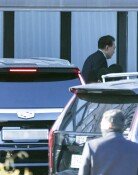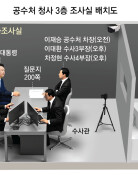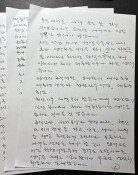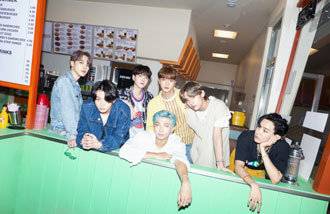Conservatives must win over moderates
Conservatives must win over moderates
Posted January. 15, 2025 08:17,
Updated January. 15, 2025 08:17
In South Korea’s 2020 general elections, when the semi-proportional representation system was first introduced, political observers closely monitored the possibility of the hard-right Liberty Unification Party (LUP) entering the National Assembly. The party had gained fervent support from hardline conservative groups at rallies as an alternative to the Liberty Korea Party (now the People Power Party), which had refrained from taking it to the streets in the Gwanghwamun Square. In a scenario where surpassing just 3% of the proportional representation vote would secure a single parliamentary seat, a key question within conservative circles was whether the hardline conservative faction would break away from the United Future Party (UFP).
However, the Christian Liberty Party, the LUP’s proportional representation affiliate, wound up garnering only 1.83% of the vote. Officials at the UFP recognized this as a sign that even staunch conservatives prioritized strategic voting. The hardline conservative faction, often referred to as the "Taegukgi Brigade," viewed uniting against the Moon Jae-in administration as their top priority at the time, opting not to break away from the UFP, they analyzed.
This lesson prompted the UFP to pivot under interim leader Kim Jong-in. Renaming itself the People Power Party (PPP), it adopted a centrist and pragmatic approach to political expansion. Kim visited the May 18th National Cemetery in Gwangju and apologized for past missteps. His actions at the time sparked internal dissent, with some accusing him of making a "baseless leftward shift" and claiming that "a Democratic Party figure is ruining the party." However, the PPP's persistent efforts to court centrist voters ultimately paid off, leading to their victories in the 2021 April 7 by-elections, reclaiming the mayoral seats in Seoul and Busan.
Subsequent leaders, including Lee Joon-seok, continued this outreach to moderates. In a rare move for a conservative party leader, Lee visited Gwangju on his first day in office, reinforcing policies to engage with traditionally liberal regions. His party membership expansion campaign successfully attracted younger voters who had previously distanced themselves from the PPP. This sustained effort to broaden the party’s base culminated in victories in the 2022 presidential and local elections.
However, their recent actions suggest a shift away from this centrist approach. With escalating political tensions, including calls for President Yoon Suk Yeol’s impeachment, the PPP appears to lean heavily on its hardline conservative base. More than 40 ruling party lawmakers positioned themselves as defenders of President Yoon Suk Yeol’s residence in Hannam-dong. They justified their actions by claiming they protected the legal system from destruction. However, to centrist voters, these moves only appear to align with President Yoon’s message during his suspension, where he urged continued opposition to "anti-state forces." Lawmakers, once tacitly prohibited from participating in street rallies, are now increasingly visible in such gatherings.
Political circles now widely believe an early presidential election is increasingly likely. Given the current political climate, it is expected that the election will witness fierce competition between the opposing camps. The key factor in determining the outcome will be which side can better capture the centrist vote. If an election is held, the PPP will start at a disadvantage, facing an unlevel playing field in terms of appealing to moderates. The more the party panders to hardline conservatives, the more it risks alienating centrist voters. The PPP has experienced the "strategic voting" of hardline conservatives, whose support has been crucial. To repay these conservatives, the PPP should not simply offer them appealing rhetoric but rather take a step back from them for a while.



